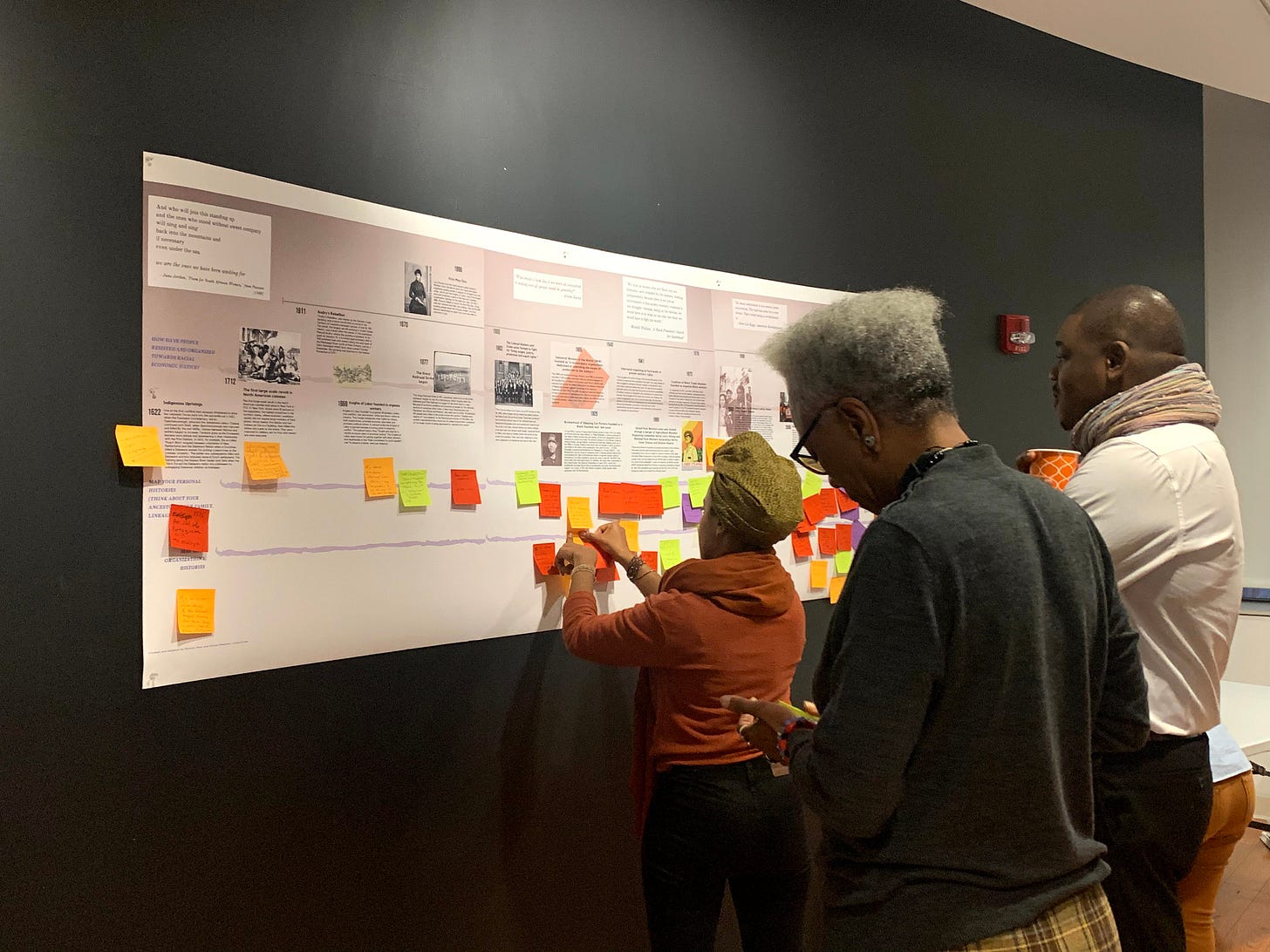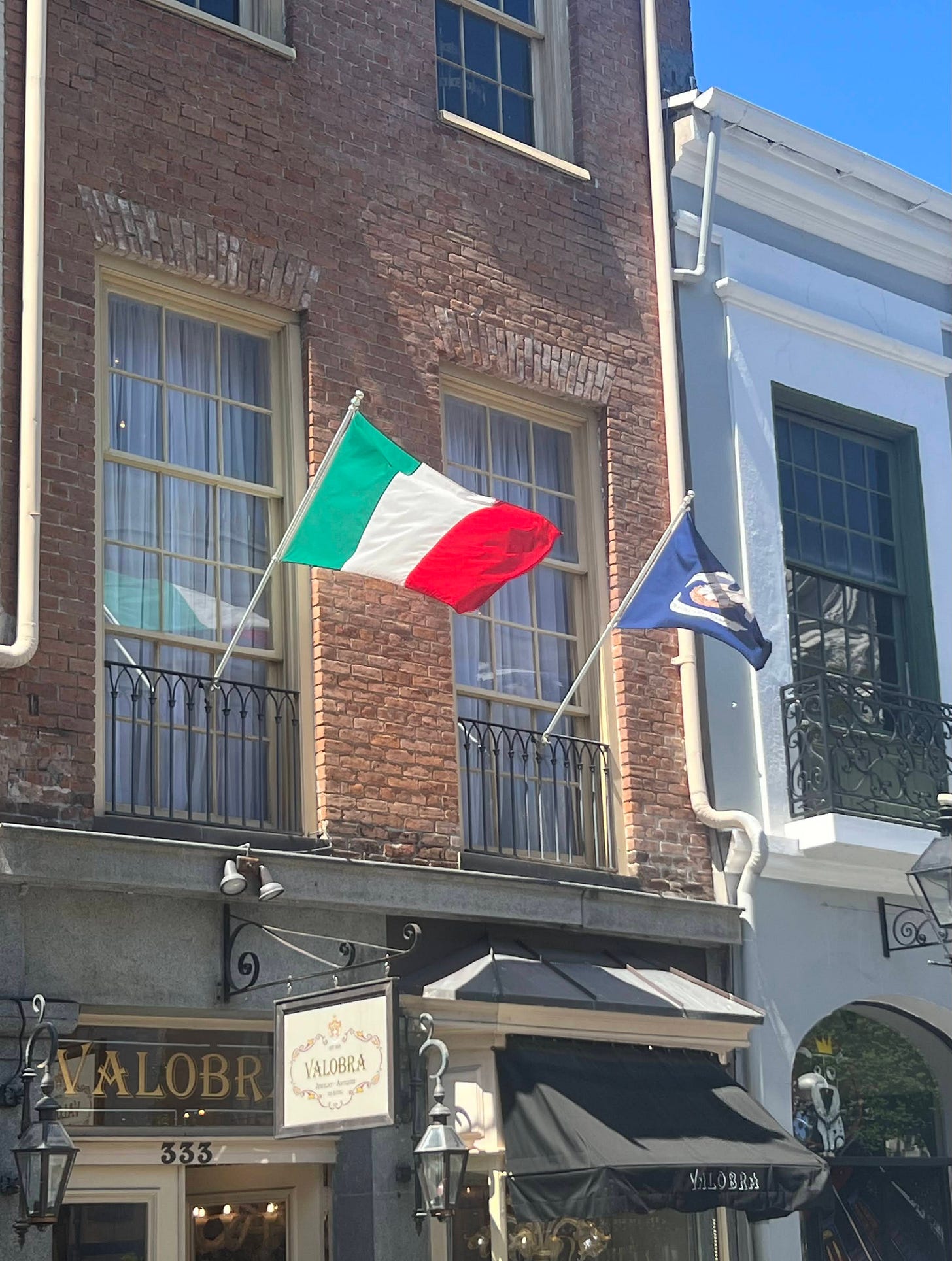My relationship to the "white race"
I'm white, but don't tell the government
Breaking news: there’s a new race! People of Middle Eastern and North African (MENA) descent are no longer “officially” white, but their own racial category.
This news comes as a big win for MENA people who fought to distinguish themselves from the broad category of “white people” in America. Considering the discrimination that many MENA people and communities face in comparison to their European white counterparts, this is not just a political win but hopefully a step toward opportunity and protection.
As a white person who thinks about race every day, many things came up for me as I read this news.
I thought first about my friend Marlon and his writing and organizing around the importance of communities of color completing the 2020 census. With an official count, he argued, the government can more accurately allocate resources toward services such as public transportation, which he benefited from as a Caribbean-American growing up in Queens.
At the time, Marlon and I were working together and having lengthy discussions among our racially diverse team about the importance of organizing Latinx and Caribbean communities around the census. With “Hispanic/Latino” distinguished as an ethnic group separate from race, someone could check Latino and Black, for example, or, more commonly, Latino and white. Our Dominican-American colleagues shared that members of their family who did not appear to be white were still identifying that way on the “official” records; our friend Thiara’s piece on her Afro-Latinidad identity begins to shed light on some of the many complicated reasons why.
Another former colleague and friend, Nadia, also came to mind. In her stunning memoir Aftershocks, she wrote about how her Armenian elders petitioned the US government to become legally white in 1909. What might they think about being grouped into the MENA category now, 115 years after gaining access to the privileges of whiteness? Does an “official” white status still matter when the privileges of whiteness can transcend race, especially for those who are able to hide their skin color behind the shiny green hues of wealth?

As I confronted my own census form in 2020, I chose not to identify as white. I chose to leave my race blank.
Since well before the United States was a country, our political leaders have used the false notion of race to divide and conquer. In the Undoing Racism/ Community Organizing workshop, we learn about the pseudo-scientists who created racial categories at the peak of colonialism and later admitted that the categories were “specious” (fake) but “serviceable to the human memory.” I hope their spirits are recoiling in shame at the “serviceability” these categories have had to the violent project of Whiteness.
My ancestors were some of the many people negatively impacted by this specious “science.” Upon arrival to the United States, southern Italians were often referred to as Black and sometimes treated as violently as African-Americans were treated. The New York Times editorial board referred to Italian children as “utterly unfit — ragged, filthy, and verminous,” and 11 Sicilians were publicly lynched in New Orleans. This event led to the (politically-motivated) ratification of Italian-Americans as white.
Things have changed over the past 100 years. Most Italian-Americans have been “swallowed by the lie of whiteness” (David Roediger). We’ve mostly abandoned our language, rituals, dances, and customs; we’ve turned our backs on the Black folks who, in many cases, taught us “how to survive, how to work the farm, and how to speak English”; we’ve surrendered our humanity and embraced the safety and luxuries of whiteness.
But the safety of whiteness is an illusion. Hoarding wealth and power while hiding behind a militarized police state is a trap.
I choose to creep out from behind this crumbling armor and be in the light of consciousness. I choose to fiercely confront and disrupt the ways that whiteness expresses itself through me while “officially” removing myself from the “white count.” I choose to say yes to the possibility of personal and communal transformation, and no to the possibility of my census checkmark being weaponized against my Black and brown comrades and family.
Like the revolutionary Noel Ignatiev said, “Treason to whiteness is loyalty to humanity.”
As we enter a voting season in which our politicians continue to use our tax dollars to fund genocide and militarization abroad and at home, I invite you to get clear about where your loyalty lies. Not because there’s a “right way” to complete the census, but because anti-racism practice is about critically assessing every choice we make. Who are you aligned with? How do your choices invite treason or alliance with whiteness? In what ways can your relationship to the construct of race shake America’s violent foundations and promote a culture of care?
With care,
Alyssa

RESOURCE SHARE
I highly recommend everyone attends an Undoing Racism/Community Organizing workshop with the People’s Institute for Survival and Beyond. It’s a space for everyone, no matter your race or your experience level talking about race. It offers a powerful analysis on how race was constructed, its relationship to poverty, and what you can do about it. Register for an upcoming workshop at this link.


